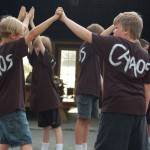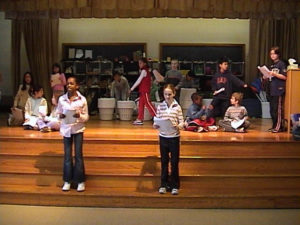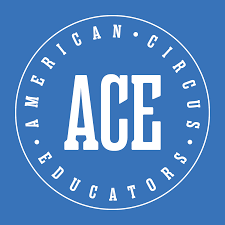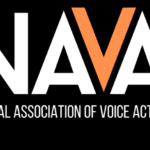This is a call to parents, caregivers, and educators with children on the Autism spectrum to encourage and embrace performance practices, and to Teaching Artists to tweak their practice to maximize the success of these students.

Theatre is a terrific way for children with Autism to have a structured environment in which to learn and practice interactive social behaviors. Moreover, the process of learning basic performance concepts revolves around unpacking and identifying gestures, body language, and subtext. The ideal environment for any kids working to memorize social cues (‘cues’ is a theatre word) in a safe, scaffolded context where they are not being singed out! In other words, unpacking the minute communication patterns in order to reproduce them is not about being ‘on the spectrum’, it’s about being an Actor.
As a Teaching Artist, I am usually working with children with Autism in the context of an integrated elementary school environment, where the entire class is involved in an arts-based academic learning project (using arts modalities as alternative learning strategies for academic content and targeted social development). I want to add some praise here for the Ithaca City School District, where inclusion is a priority, and where the teachers and support teams with whom I have worked have embraced the idea of having these kids be involved in the arts-in-education project, including in the public performance.

However, theatre projects, where the goal is to learn performance concepts and then put on a show, are also amazing ‘playgrounds’ for young people challenged by ‘spectrum’ thinking patterns. I am involved with an integrated-skills (and I mean ALL kinds of skills) musical theatre project called Star Search at the Community School of Music and Arts (www.csma-ithaca.org), where kids from ages 10-16 who may or may not have any experience in performing arts put on a full length musical (in which everyone sings, dances and acts) in 9 days. Oh, and there’s no audition to join the project.
That means we have some kids challenged with ADHD, some kids challenged with ASD, some kids challenged with profound shyness, some kids challenged with wanting to grow their performance skills but never getting cast in a school show, and some kids challenged with already being labelled ‘triple threats’. We focus on growing the the sense of Ensemble, and using that as a place for artistic and personal development.

But kids on the spectrum can also have a theatre troupe all to themselves. I also had the honor of doing a small project along these lines with Three Tier Consulting (http://3-tier.org/home/), and although what the students are bringing to the table is soooooo varied, my big regret wass that we don’t have the opportunity to meet weekly for an extended period of time, like two months (that kind of timeline works well for this group of folks who feel comforted by the clear and reliable schedule).





